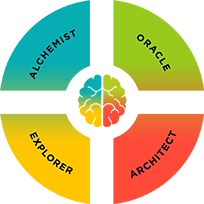Total Reading Time: 8 minutes.
I’M HOME. 97 days. 24 cities. 7 countries.
Words can’t explain how amazing this trip was. The perspective an experience like this gives you is truly priceless. I learned a lot. I learned about human beings. I learned about myself. And I learned that most of what I’ve been taught was wrong.
I learned more in three months traveling the world than I did in four years of college…wait I mean five (I went to a party school). Living, traveling, and working in different parts of the world was something I’d been dreaming of doing since I was 16 years old—and I finally did it.
During my adolescent years, my rebellious, non-conformist ideas of what life should actually be started brewing. I struggled a lot with trying to balance what society wanted for me, and what I truly wanted for myself. I think we all do in some way. So I started trying to do both. It didn’t work very well.
I was working at jobs most people would do pretty much anything for. I had a “legit” job at 3M coming right out of college. Living in Manhattan, company car, expense account—the works. And eventually got recruited to work at Google.
But, deep down there was a little fire smoldering. For many years I watched others with envy living the life I dreamt of, running right past me and splashing kerosene on my little fire.
When I finally did make the leap, I thought long and hard about what my founding principles of this site would be.
I decided I would make my work feel like play, and my play feel like work.
The master in the art of living makes little distinction between his work and his play, his labor and his leisure, his mind and his body, his information and his recreation, his love and his religion. He hardly knows which is which. He simply pursues his vision of excellence at whatever he does, leaving others to decide whether he is working or playing. To him he’s always doing both.
— James Michener
So you might be wondering—is it possible? To travel and work (productively) at the same time? It’s more than possible, friendo. I even took it to the extreme and scheduled a product launch in the middle of my travels throughout Southeast Asia.
I learned how to stay sane (which doesn’t mean I didn’t go slightly insane) during one of the most important phases of my business. I believe it’s safe throughout these travels I packed my bags and hit the road at least 30 times.
I’d like to share some odd and somewhat surprising lessons that I hope serve useful for you.
My attempt is to make these lessons somewhat general. So no matter what stage you’re at in your life, business, or career, it will give you some tangible takeaways you can apply today.
Lesson 1: Your perspective is wrong
It’s a tough one to swallow. Practically everything you have invested yourself into emotionally in your life is based on one single standard and one perspective. The one with which you were raised and taught being the ‘right’ way to see the world.
And this, unfortunately, is wrong. We all live in bubbles. We judge others based on this perspective. We even judge our own lives based on this. Ever heard of the phrase “first world problems”?
Well, that’s just the first step. So what if you acknowledge your bubble. What are you going to do about it? In my opinion, your perspective could be sabotaging your life. I know that’s a bit hyperbolic, but think about how grateful you could be if you had the right perspective.
There’s only one cure—travel. Far too often we’re stuck in the details of what we’re doing. This may cause you to feel alienated and just constantly suffer through the minutiae of your day.
No one wants to live in the fog. No one wants to feel like a chicken with its head cut off. Traveling taught me that what I valued as the most important aspects of my life, my business, and even the small tasks of my day, were actually not that important.
Listen—just to be clear—I’m not saying this because I did a bunch of drugs and had some spiritual awakening suddenly. And I didn’t go on this trip to “find myself”. Seeing the way others live their lives, on a day-to-day basis, can dramatically change your perspective.
If you can learn to see things from a more macro level you may find that you’ve actually been focusing on all the wrong areas. If you find yourself stressed or stuck in the details, take a break and think bigger.
Stop and ask yourself:
What’s my outcome?
Ask yourself that question daily. It will always guide you in the right direction.
Lesson 2: No one will care that you’re not around
Seriously. But don’t freak out. I don’t mean your family and best friends. They care. You’re nice. What I mean is your colleagues, co-workers, business partners, employees, etc. It’s simply not as important as you might think it is to be there physically in person.
Isn’t it funny that that’s one of the things people stress about the most when deciding if they can and should go on a trip? Trust me—people will get used to it and many won’t even know you’re gone, especially if they don’t normally see you in person (and if you don’t tell them).
You can actually use this to your advantage. Be free! The hard part is adjusting to a schedule that works for you, your travels, and/or your business.
Personally, being in Southeast Asia and needing to speak with people almost daily in the Pacific and/or Eastern time zones was sometimes difficult, yes. But, definitely manageable. And so worth it.
Lesson 3: You’re spending way too much time
You don’t need nearly as much time as you think to work.
If you give yourself 40 hours a week, you’ll use it.
If you give yourself 60 hours a week, you’ll find a way to use it.
If you give yourself 25 hours a week, you’ll find a way to use it well and for only the most important tasks.
“But, Arman…I have so much to do and there’s never enough time in the day!” I know, I know. See, I found that less time was actually a good thing.
As the Pareto Principle (also known as the 80/20 rule) says, 80% of the effects come from 20% of the causes. So in this case only 20% of our time spent working will create 80% of our results. I made sure to keep in mind I would only have 3-4 hours each day to get things done.
I even emailed Chris Guillebeau—a role model, world traveler, best-selling author—and asked:
Do you have any tips on how to balance working while traveling?
Here’s what he said:
Well, I perhaps work from everywhere. I think an important thing is dividing the time a bit. When I’m in a new place, I do want to appreciate it, but I also want to keep working on my stuff since that’s what sustains everything. In a typical situation, I’ll do things like work in the morning and then go off exploring in the afternoon — or vice versa, it doesn’t really matter as long as you are able to make time.
After reading his response I realized how much I was stressing about something that was not yet even a problem. So, basically, just make time. There’s no secret formula. Just do what works best for you.
Once you decrease your available work time in front of the computer, you’ll get really good at finishing the ‘musts’ and stop wasting time on Instagram.
Lesson 4: Everyone is fighting their own battle
People are generally good. Learn to respect other human beings and acknowledge the individual battle they are waging. If you show a little genuine interest in others, you will be blown away by their intelligence and experience. I can pretty much guarantee you’ll learn something enlightening, or at least develop your perspective a bit.
How about my friend Mr. Why Not from my guesthouse in Siem Reap, Cambodia? Mr. Why Not was a child during Pol Pot’s Khmer Rouge regime and mass genocide in Cambodia. His entire family was killed and only himself and one brother survived. He was raised in a village and eventually came back to the city as he got older to make a living for himself. First, as a tuk tuk (taxi) driver.
He then began working at a guesthouse led by an Australian lady, who became his mentor and friend. Eventually, he started running the place. Throughout all his life whenever he has been faced with an opportunity to do something new, or someone asks him whether they should do something, he always has the same response:
“Why not?” Well, the name stuck. Mr. Why Not is a real person. He lost his family. He’s a good person. And he taught me a lot. I haven’t been to every country in the world like my hero Chris, but I’m pretty sure he would agree with me on this thought:
People are generally the same everywhere. We go through the same struggles, the same worries and fears, and we’re each waging our own individual battles.
There are more good people than bad in the world. And deep down, everyone just wants to be happy and successful. What this means is that we need to acknowledge people on a human level way more often. We need to “appeal to the nobler motives” as Dale Carnegie famously said.
Many times, when we’re so busy battling through life to reach our next destination, we don’t take a moment to stop and realize these people we’re dealing with are on the way to theirs too.
This small change in my perspective and outlook has helped me forge closer relationships with people I work and interact with daily. When people can see and feel that you are genuinely acknowledging them, they will acknowledge you back.
Lesson 5: The best way to keep in touch
There’s Skype. There’s texting. There’s your phone. And there’s at least another 100 apps and methods to stay connected with people. These days, the options are practically unlimited. But far and away email is still the best way to keep in touch. It blows them all away.
Personally, I rocked my 97 days away and was able to pull off the product launch successfully. I attribute this mainly to my ability to handle email and communication so well.
You need to make email management and email writing skills a priority in your life. I watched so many people drop the ball while I was traveling. It was sad. And they’re the ones at home with super-speed wi-fi connections working 8+ hours a day.
Over and over again, through the years I’ve learned that communication is the #1 skill you can have. Don’t undervalue this.
So, the question at the beginning…is it possible to work and travel? If you’ve ever, ever thought about attempting a similar type of adventure—just go. Don’t even think twice about it. GO.
Stop asking people for advice on where to go, how to do it, what to pack, etc. It all works itself out, I promise.
Every single little village, city, and country in the world is amazing for its own reasons. Just let go and allow yourself to have a real adventure. Everything you need and/or are worried about is waiting for you at your destination. Don’t worry, they have Q-Tips in Nepal. Well, generic ones, probably.
I ended up visiting Bali, Myanmar (Burma), and Singapore all last minute simply because I was open to it. You never know where your adventures will take you.
And please, be nice to tourists. I for one will always treat visitors with respect and make sure they absolutely love my country. I cannot explain how important that is for our world image and how people feel about a place during their visit.
Photo: Cambodian Boy—CC License
##
Throughout this experience and many other travels I tested many travel apps. If you want to find out what the 10 must have apps are for any travel lover, check out this article.






